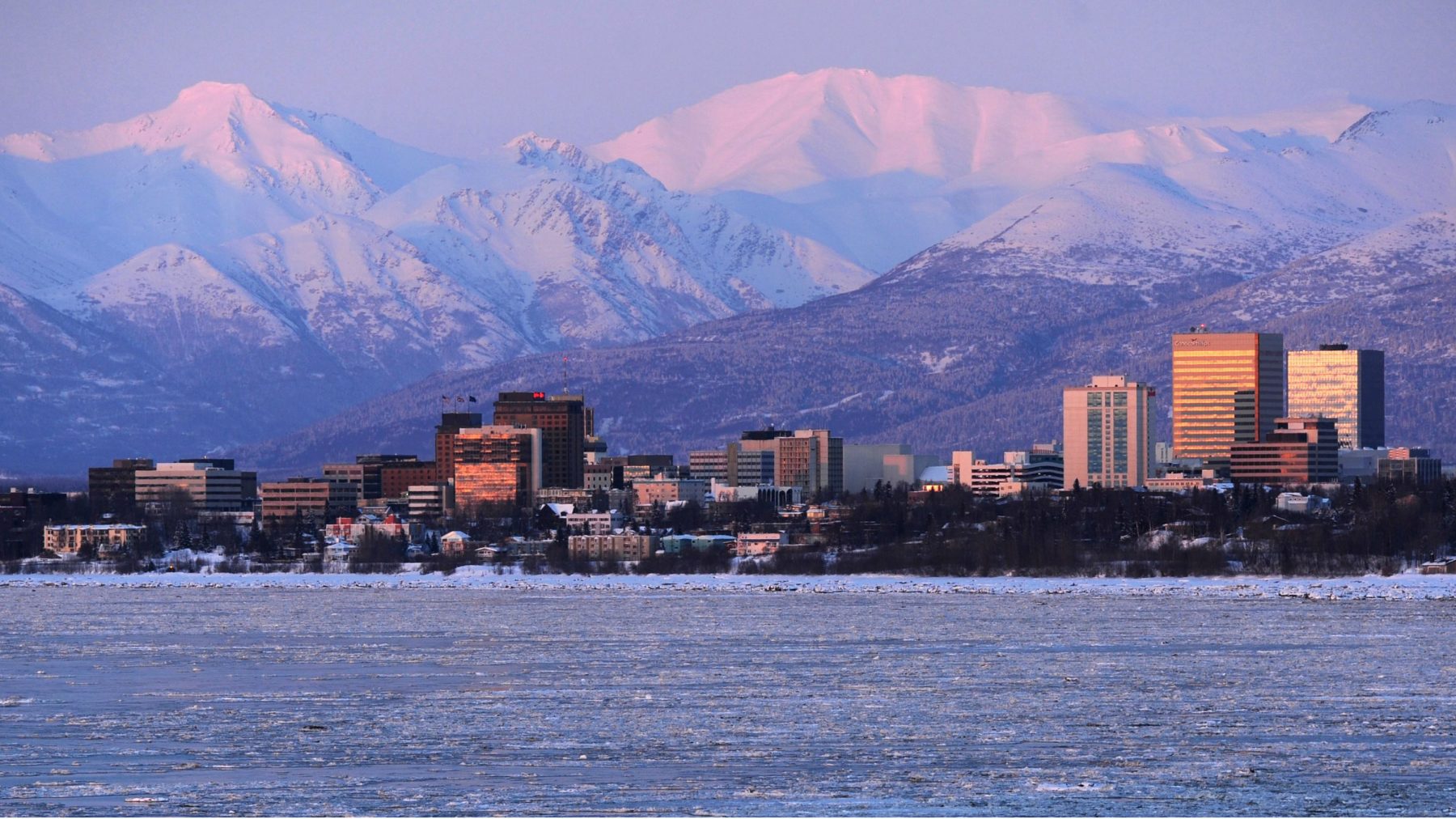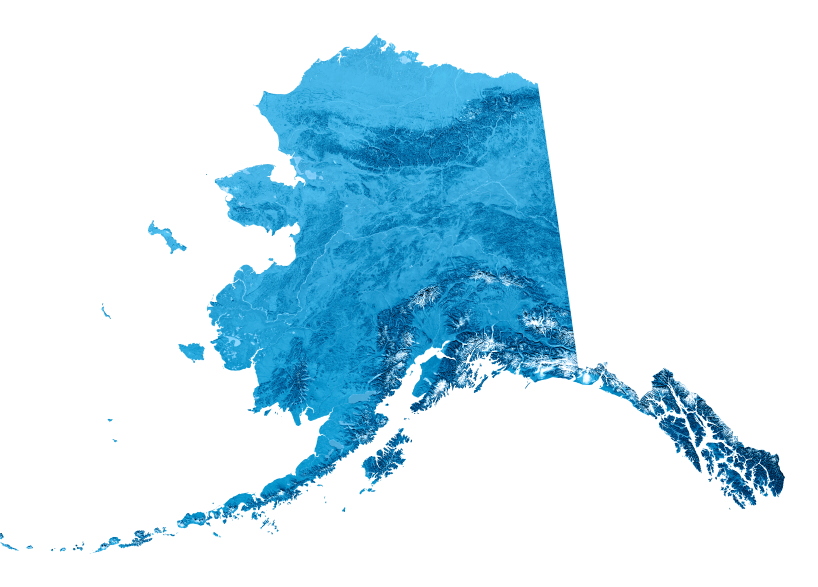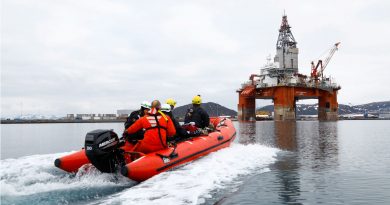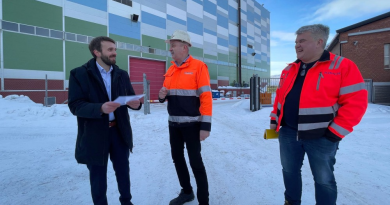Why are people moving away from Alaska?

More people are leaving Alaska than are moving to the state, leading to overall population decline. That’s the major takeaway from data released earlier this month from the state Department of Labor and Workforce Development.
Alaska has seen net migration losses for the last six years. That means more people are moving out, than are coming in.
“It’s the longest on record,” Labor Department demographer Eddie Hunsinger said. “And the last couple years it’s caused some population loss for the state, as far as total population goes.”
He says Alaska’s total population has declined for two years in a row. That means there weren’t enough babies born in the state to replace the people who moved away or died.
“It’s been strong the last two years, the losses,” Hunsinger said. “So it’s really…It’s a new era of net migration losses that we’re seeing in the state.”
There are a lot of different reasons people might move in or out. Hunsinger said a big factor is where the jobs are.
“Employment growth down south has been pretty strong,” Hunsinger said. “Relative employment growth can relate to net migration change. When there’s stronger employment growth down south…there’s a better chance we’ll have more people leaving the state than moving to the state.”
Life isn’t cheap in Alaska
But there are other factors that lead people to pack their bags and move. Alaska Public Media reached out on social media, asking Alaskans and former Alaskans if they’d recently moved out of state. Or, if they know someone who has. And if so, why?
We got a lot of responses, and many of them mentioned work opportunities. Others said politics factored into their decision to move. Other responses included the economy, the cost of living, the weather and cheaper travel.
A few of these things factored into the decision Ken Woods made to leave Alaska at the end of 2018.
“The high cost of living in Fairbanks, specifically,” Woods said. “The high costs for heating fuel, the high costs for medical insurance and everything that is associated with being in Alaska, drove us to look elsewhere.”
He says state and national politics also played a role in the decision.
Woods lived in Alaska for about 15 years. But in December, he and his family left Goldstream, outside Fairbanks, for the Netherlands.
“I miss my friends, I miss the people…I miss looking out over Goldstream Valley and looking at the Alaska Range in the mornings and watching the sun rise,” Woods said. “I miss the comfort in knowing that I can leave my truck running in the Fred Meyer parking lot, and come out, and it’s still going to be there.”
Still, Woods says he’s glad they left. He says a lower cost of living in the Netherlands makes a big difference for his family.
To stay or not?
Sharon Sullivan’s tenure in Alaska was much shorter. She moved to Juneau in 2017 to work for the National Weather Service. And, while she didn’t move to the state thinking it would be a permanent home, Sullivan says there was a time when she could see herself staying.
“There was this shift during the summer. Kind of a turning point, trying to decide whether to go back to the Lower 48, or stay. It was kind of a tough choice,” Sullivan said.
But, ultimately, after about a year, she chose to go back home to Albuquerque, New Mexico.
“Family and having different opportunities. I do want to travel more and explore more. It was kind of hard, of course, getting out of Juneau,” Sullivan said.
Alaska population shrinking

Sullivan and Woods aren’t alone here. They’re part of the trend.
According to the Department of Labor, which gets this data from the census, and permanent fund dividend applications, Alaska’s population decreased by 0.2 percent, or 1,608 people, from July 2017 to July 2018.
Net migration accounted for a loss of about 7,577 people. While natural increase, that’s births minus deaths, led to an increase of 5,969 people.
The data also shows that the state’s senior population grew, while the number of younger people declined.
Over the last few years, birthrates have gone down in Alaska.
Anchorage (southcentral) lost the most people between 2017 and 2018, while right nearby, the Matanuska-Susitna Borough grew the most.
Alaska has been in recession since the end of 2015. In that time, the state lost more than 12,000 jobs. This year, state economists think things may turn around, and Alaska could start gaining a modest amount of jobs.
So what will net migration look like in 2019? That’s still a big question. But, Hunsinger says his department is projecting it will hover around zero.
Related stories from around the North:
Canada: Access to affordable housing a challenge in Northern Canadian cities, CBC News
Finland: Report highlights Finland’s top 5 housing problems, Yle News
Norway: Immigration curbs population decline in Norway’s northernmost county, The Independent Barents Observer
Russia: Population dropping in Northwestern Russia, The Independent Barents Observer
Sweden: Small town hopes to reverse depopulation trend affecting rural and Northern Sweden, Radio Sweden
United States: Can Alaska handle its senior population growth?, Alaska Dispatch News




Alaska’s population is in a permanent death spiral. Last one to leave turn out the lights.